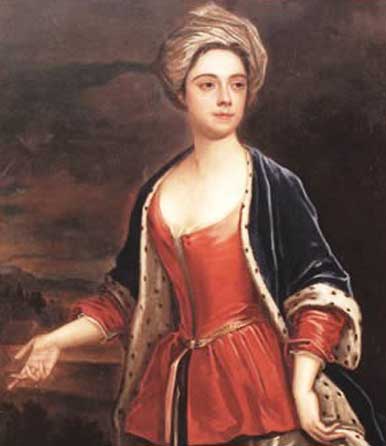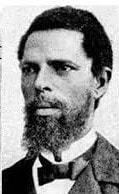|
“Vaccine” comes from vacca, Latin for “cow.” Edward Jenner proved in the 1790s that pus from relatively harmless cowpox blisters—common among dairymaids—protected humans against smallpox. Jenner’s vaccination built on a riskier traditional practice in Asia and Africa called inoculation (from inoculatus, “to graft or implant”). An Englishwoman and an African man introduced inoculation into Europe and North America respectively, almost exactly 300 years ago.
Lady Mary Wortley Montagu lost a brother to smallpox, and the disease scarred her face. Living in Constantinople while her husband was British ambassador, she watched old Turkish women scratch smallpox pus into healthy arms or legs. The resulting infection was usually mild instead of deadly or disfiguring. Back in England during an epidemic, she had her daughter inoculated publicly in April 1721. The practice spread. That same April, smallpox came by ship to Boston, Massachusetts. An enslaved West African named Onesimus told his master, Cotton Mather, that he knew how to prevent the disease. The operation he described “had given him something of the smallpox and would forever preserve him from it.” Bostonians resisted vehemently. More than half the city’s residents contracted smallpox in 1721-22; one in seven patients died. But of the 242 who were inoculated, all but six survived. Jenner holds an important place in the development of vaccines. So should the traditional healers of Asia and Africa, and the white woman and the black man who brought their methods to the West.
8 Comments
4/26/2021 09:23:01 am
Thanks, Danielle. I wonder if it's just coincidence that the Englishman Jenner gets all the attention, while older, established traditions from Asia and Africa get very little.
Reply
Christine DeSmet
4/26/2021 07:51:26 am
Great information that gives us perspective. Thanks!
Reply
4/26/2021 09:25:27 am
Thanks to you, Christine. I found it interesting that Cotton Mather was very supportive of his slave's medical knowledge, although most residents of Boston rejected it at the time.
Reply
Dennis Doren
4/26/2021 10:30:26 am
I very much appreciate this look at history. It is easy to forget how we got where we are, if I ever knew.
Reply
4/26/2021 05:47:02 pm
Dennis, glad you enjoy this kind of thing too! I knew about Jenner, and a bit about Lady Mary Montagu, but only heard of Onesimus recently. Interesting how some figures or events become part of established history and others almost disappear (or actually do disappear, in many cases I suspect).
Reply
CHARLDA L THOMPSON
4/26/2021 09:34:44 pm
Thank you for all the interesting history you've shared. It has broadened my perspective on this pandemic and this unusual year!
Reply
4/26/2021 09:46:18 pm
I appreciate your appreciation, Charlda. One thing this strange year has been good for is, lots of new things to keep learning.
Reply
Leave a Reply. |
AuthorI'm a historian who writes novels and literary nonfiction. My home base is Madison, Wisconsin. Archives
July 2024
|


 RSS Feed
RSS Feed